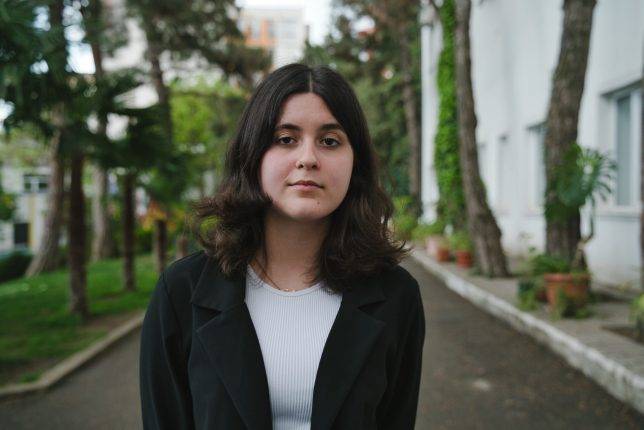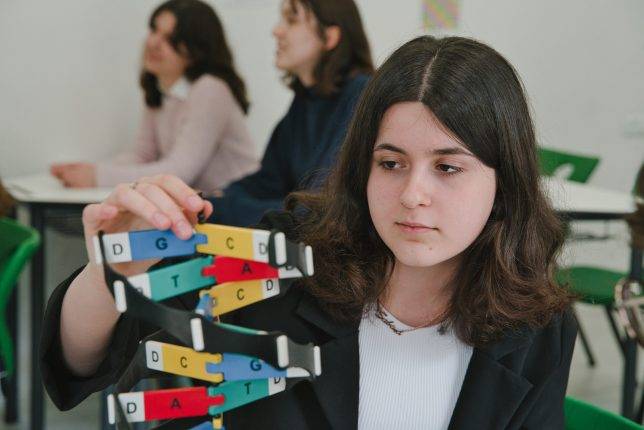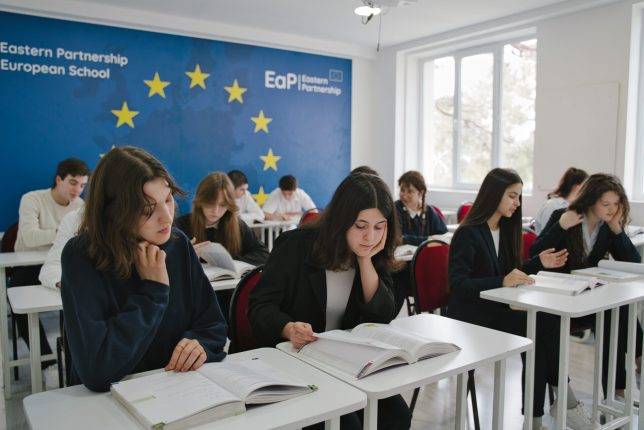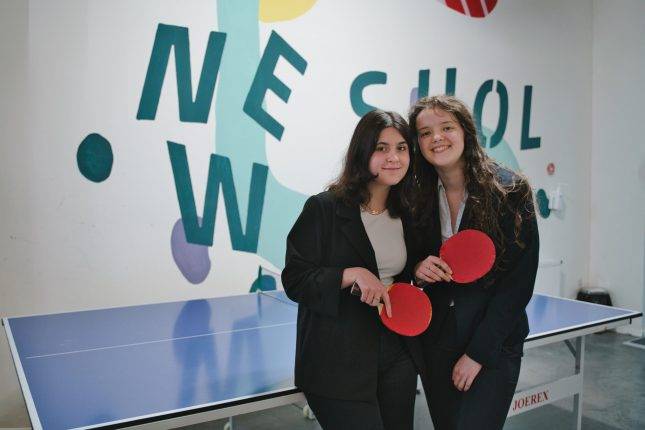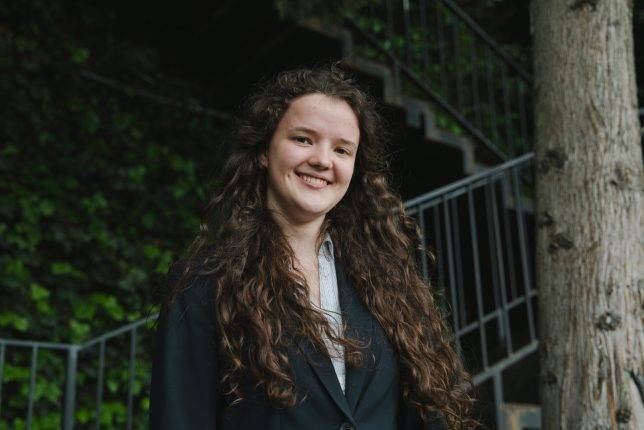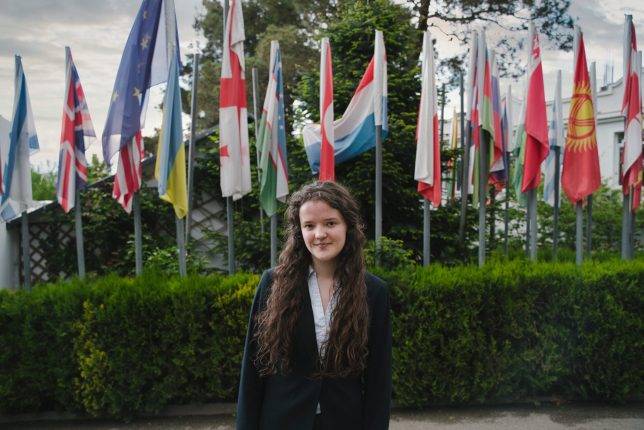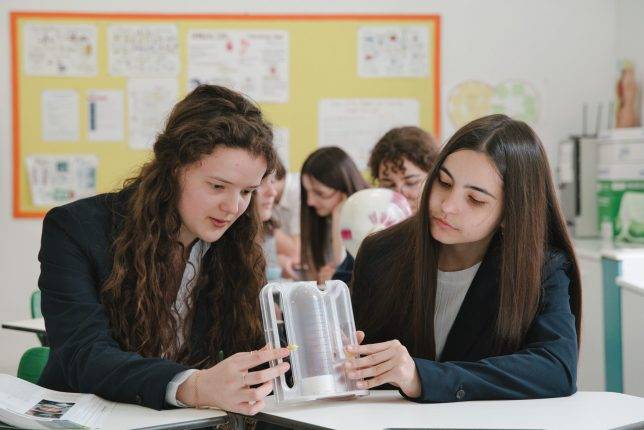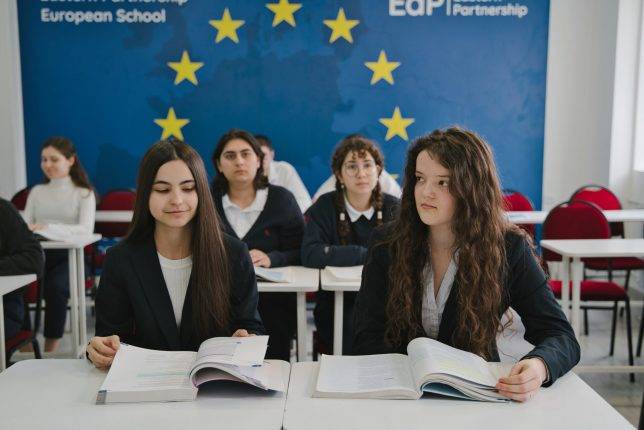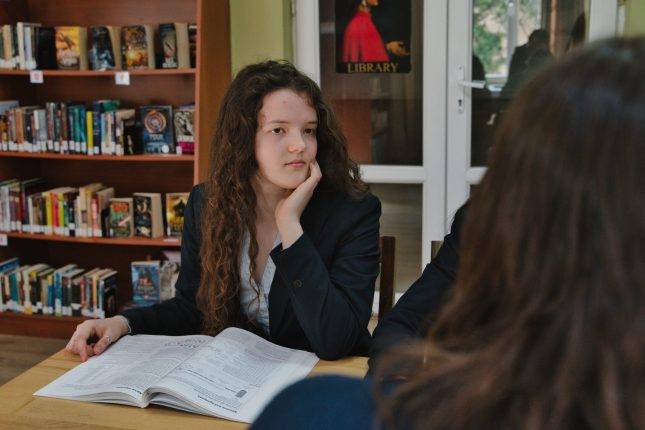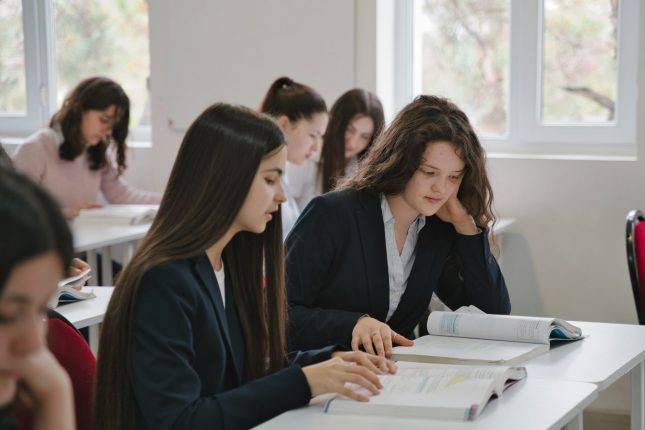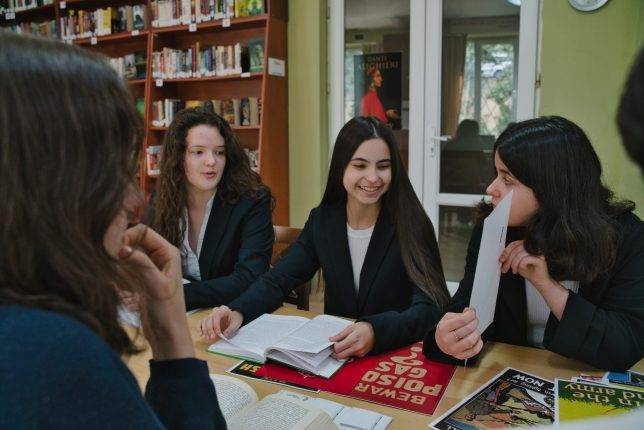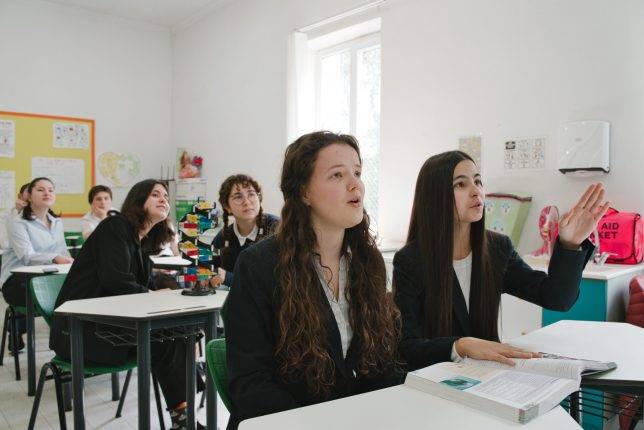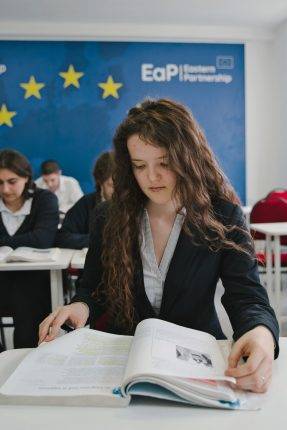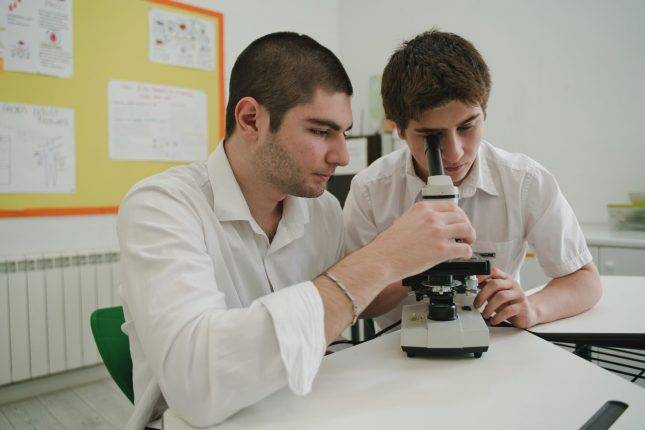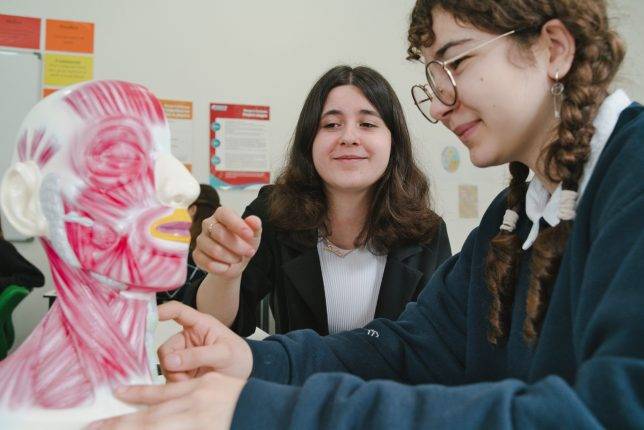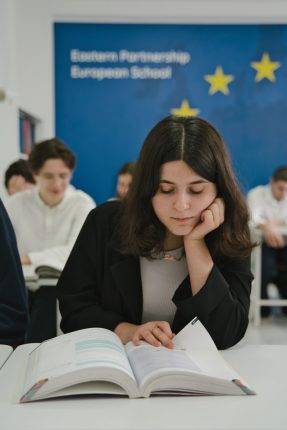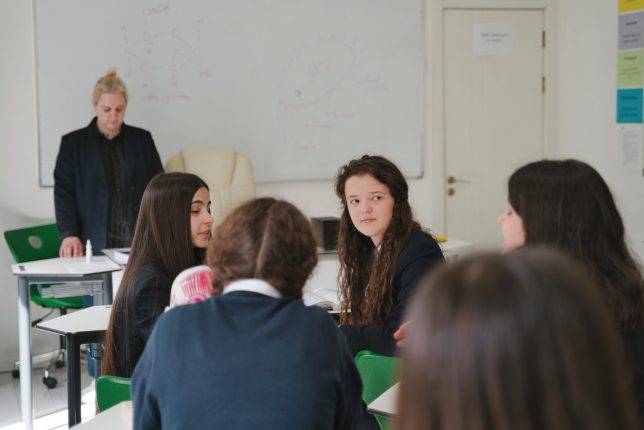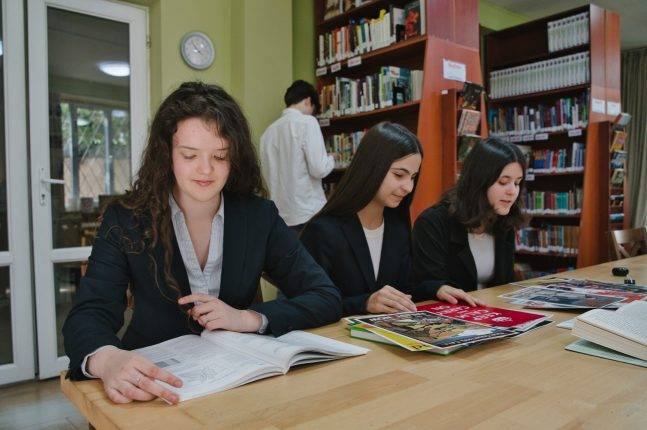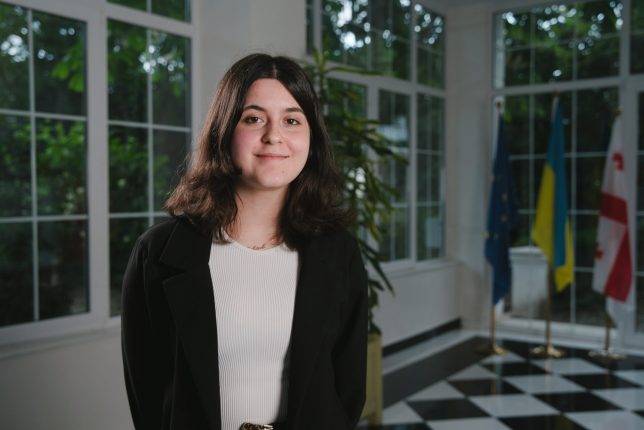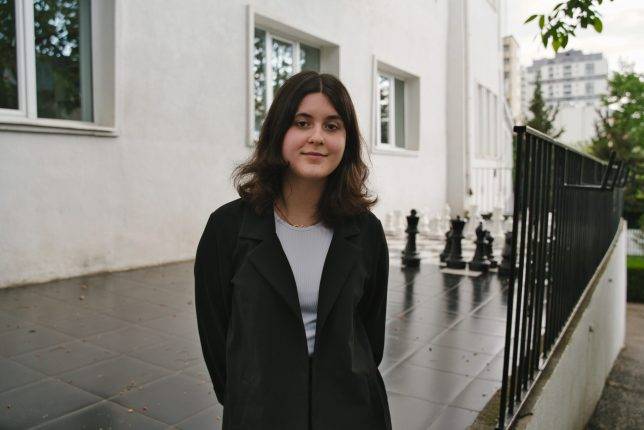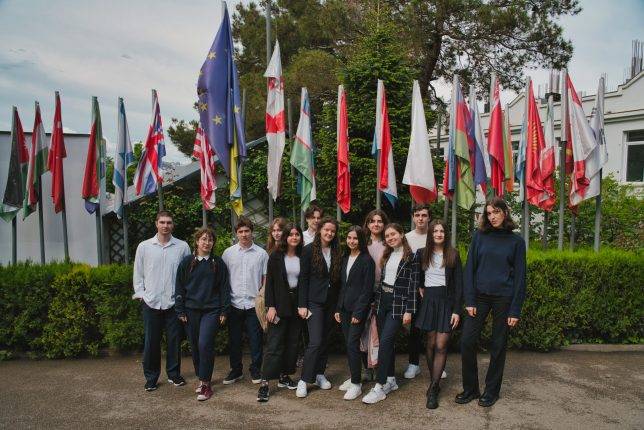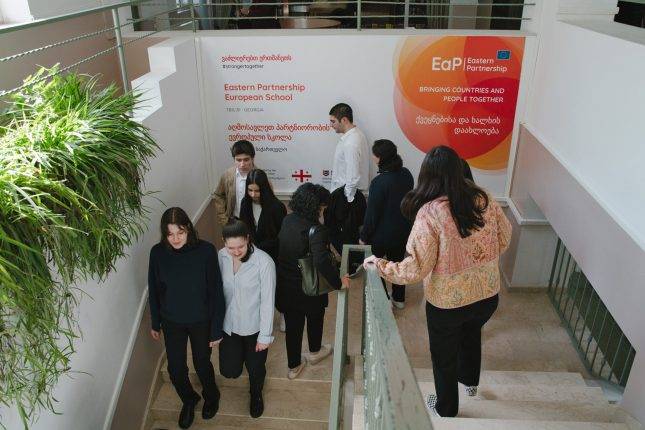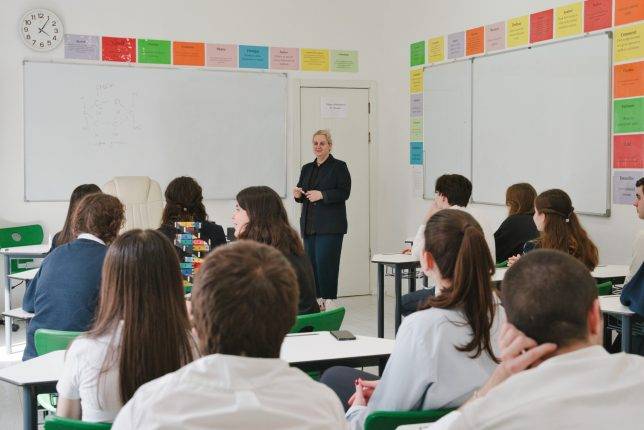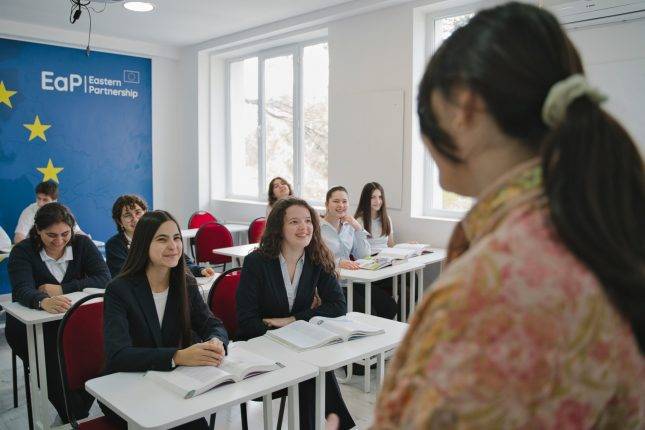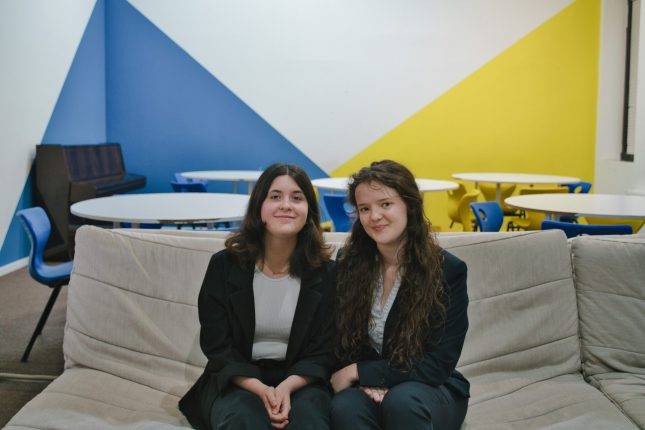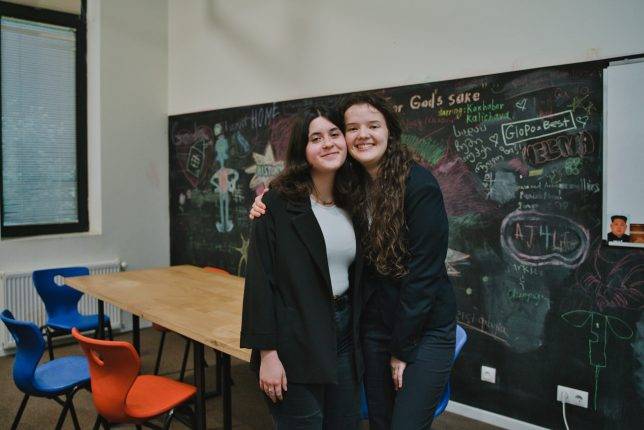
Unique skills for top universities: how the Eastern Partnership School led two Ukrainian girls to Harvard and Yale
15/05/2023
Seventeen-year-old Sabina Babayeva from Kupiansk-Vuzlovyi in Kharkiv Oblast and eighteen-year-old Maria Gnatiuk from Moshchun in Bucha Region, Kyiv Oblast, have been studying in Georgia for two years thanks to a scholarship from the European Union.
Having completed grade 10 at secondary school in Ukraine, the girls enrolled for the two-year International Baccalaureate (IB) programme. The programme includes courses in human sciences, European languages and literature, arts and history.
The possibility to choose courses, extra-curricular activities, such as volunteering and sports activities, and a scholarship that covers fees, travels, and boarding and meals at the school’s facilities – this is the story of studying at the Eastern Partnership European School.
How it all began
As far back as Sabina Babayeva can remember, she was always proactive. She was involved in the development of different projects at her secondary school and beyond, volunteered, worked at a town youth council, and met interesting people.
“I learned about the Eastern Partnership European School from my acquaintances when I was in grade 9. Back at that time, I thought a lot about what I should do with my life. I didn’t want to study in my country and limit myself to comfortable, familiar, and usual things. I always wanted to gain different experiences and discover as many opportunities as possible. So, I decided to apply for the programme,” Sabina says.
The story of Maria Gnatiuk is similar. It was the end of the school year in grade 7 when Maria decided that she wanted to study in the USA. But she realised that she had to have a good knowledge of English. Maria started learning English and looked for programmes she could apply for. Thus, when she was in grade 8, she applied for FLEX – the Future Leaders Exchange programme funded by the US State Department. But she wasn’t accepted by the programme. And so in grade 9, she applied for three different programmes.
“I was eager to get a chance to study abroad and receive the internationally recognised IB Diploma. And in future, I would like to come back to Ukraine and get involved in meaningful projects,” Maria says.
After submitting an application, passing written tests in maths and English, and being interviewed, Maria and Sabina were both accepted to the Eastern Partnership European School. The girls came to Georgia after completing grade 10 in Ukraine in 2021. The two-year IB programme replaces grades 11 and 12 at secondary school.
“A full scholarship is one more key factor for me. My parents don’t need to be concerned about any expenses. The scholarship covers fees, travels, and boarding and meals at the school’s facilities,” Sabina says.
How the studying process is organised
The ІВ programme includes six groups of subjects: literature, languages, human sciences, natural sciences, mathematics, and arts.
Students have to choose one subject in each group they like most of all to study for two years. The arts course can be replaced with any other subject from the six groups.
“In Ukraine, I studied at a top-notch lyceum with highly professional teachers and great classmates. However, I studied 20 subjects. Pupils study some subjects just to check the box, because they do not have enough time for all courses. I often didn’t understand why I needed to learn some material. That is why you feel great when you can choose what to study,” says Maria.
Moreover, having the guidance for each course that explains why students need to gain specific knowledge is very important for the girls.
The IB programme has several more requirements. For example, students have to study Theory of Knowledge. The pupils explain that this is a philosophical subject to some extent. In this course, students can learn how knowledge is developed and how people can perceive it.
Moreover, the IB program includes CAS (Creativity, Activity, Service), which involves students in a range of compulsory activities alongside their academic studies. Students have to reflect on their CAS experiences.
“In Ukraine, some of my friends were outstanding students but they were not involved in any extracurricular activities. They focused only on studying. In the IB programme, we can learn how to strike a proper study-life balance,” Maria says.
For example, Maria’s extracurricular activities include embroidery, horting (a Ukrainian form of martial arts), and running. She has also worked as a volunteer for an inclusive football project, where she helped children with special educational needs to develop skills related to sports activities, and to communicate with other children.
Moreover, Maria and Sabina also attend sessions of the European Youth Parliament. Sabina has travelled to Kosovo to study the local conflict and Maria took part in a session at the ReBuild Ukraine conference, at which ambassadors from different countries discussed how to rebuild Ukraine.
“An essay-reflection on this experience is a very important element. The essays help us to better understand what we have done and how we have affected our community or how this experience has affected us,” Maria explains.
Similar to Ukrainian secondary school classes, the IB programme classes last for 45 minutes. Every day, students have five or six classes with a one-hour break for lunch. Moreover, the girls can travel to Ukraine during winter and summer school breaks, with their travels being covered by the scholarship. The scholarship also covers travels across Georgia.
What is the difference between studying at a Ukrainian secondary school and under the EU-funded programme?
“The considerable difference can be found in resources provided to us and teaching approaches. When I studied at a Ukrainian secondary school, I felt that teachers taught everything at once. I didn’t always like how they conveyed information to us and the textbooks we used for studying. And very often, our teachers were not interested in engaging us,” Maria says.
All the textbooks used in the ІВ programme are published by Oxford University Press and Cambridge University Press. According to the pupils, the textbooks are of high quality and information is laid out in an interesting and creative way.
A striking difference between studying at a Ukrainian secondary school and the Eastern Partnership European School also lies in the fact that the IB program students can choose the subjects in which they are interested.
“We put our effort into the learning outcomes we would like to deliver. Thus, we are more motivated to study the subjects that we really like. That’s exactly what I expected from my studying,” Maria says.
For example, Sabina chose the politics and history courses. She would like to focus on these areas after graduating from the school. However, the girl was surprised at some aspects.
“We were selected for this programme because we stood out from our classmates. At our Ukrainian secondary school, we had high grades and had achieved academic excellence. And we knew about this. We were accepted to the Eastern Partnership European School and understood that we were not the only persons who were outstanding and smart. This was the first great challenge. At first, it was difficult to acknowledge the fact that there were a lot of smart people. This should motivate us to learn from our classmates rather than compete with them,” Sabina says.
Moreover, Sabina says that each course is based on a conceptual and consistent approach.
“We learn how to reflect on a subject based on these approaches. At the Ukrainian school, I gained knowledge rather than developed skills. I had to learn specific things which can be easily forgotten. Because we are human beings. Because our brain works in such a way,” Sabina says.
Sabina says that at the Eastern Partnership European School, students develop their skills and learn how to understand concepts. And if you understand a concept, you can create knowledge by yourself.
“In general, the IB programme is not only about your smartness and academic excellence. It is also about your abilities to approach studying subjects based on your interest in them. You have to be interested in changing yourself,” Sabina says.
The school provides not only studying experience.
How the school helped after the war started
Last winter, during a school break, when Maria came home – to the village of Moshchun in Bucha Region – Russia launched its full-scale invasion of Ukraine.
“We could see Hostomel, Bucha, and Irpin from our balcony, since Moshchun is a sort of a junction point for these towns. Later, the Russian military launched an offensive through our village and almost razed it to the ground. In six days, my parents, my sister, and I managed to leave for Kyiv,” Maria recollects.
Maria came back to Georgia with nothing. A shell hit her house and almost completely destroyed it. She travelled by train to Chernivtsi and then by car together with strangers across five countries for ten days.
“At that time, I received critical support from the school, including moral support. The school organised a fair that collected 2,500 US dollars of humanitarian assistance for Ukraine. Moreover, the school provided financial support to me and my friend. Using these funds, we could buy clothes, personal care and hygiene products, and things we needed most of all,” Maria says.
Sabina says that when the full-scale invasion started, the school offered to bring her parents to Georgia for free and find accommodation for them there.
“In summer, I couldn’t go back home because my town was occupied. And I lived alone in a dormitory since all my classmates went to their home countries. At that time, I received an extra scholarship, even though the allowance is not provided for by our programme,” Sabina says.
Top-notch skills pave the way for Harvard and Yale Universities
“Studying at the Eastern Partnership European School is difficult. And not without reason. While ‘suffering’ from the IB programme challenges, you can really develop top-notch skills,” Sabina says with a smile.
For example, Sabina underlines that in the IB programme, students can develop great writing skills, since each course includes writing essays and producing other written assignments. These skills helped her to write an excellent admission essay for Yale University, which she had dreamt of for a long time.
“One more important thing is that the school helped me to understand what I like and what I would like to achieve in the academic dimension,” Sabina says.
Sabina fell in love with history and will study it at Yale University starting from this autumn. The girl has received a full scholarship for studying at one of the world’s top universities. Sabina believes that studying history is very important.
“In general, the IB programme helped me to feel much more confident in my knowledge and to use it as a tool. Understanding why you need specific knowledge and where you have to use it is one more important skill,” the girl says.
Sabina also adds that the IB programme involves constant reflection on your knowledge and skills. Thus, pupils learn how to reflect on and analyse different experiences. She believes that this also helped her to pass entrance exams for Yale University.
At the same time, Maria has already entered Harvard University, and was awarded a full scholarship for studying. She says that Ukraine Global Scholars (UGS) helped her to enter the university. Every year, this organisation selects people who would like to enrol at top world universities. It helps candidates to prepare for tests, write a CV and an essay, as well as providing mentorship support.
If a person enters a university, he or she then has to join Ukraine Global Scholars and in turn help other candidates to enroll at universities. Moreover, according to a contract, the person has to come back to Ukraine in five years and hold a leadership position at a company or set up their own business for at least four years. Otherwise, they have to pay 10,000 US dollars for the organisation’s development.
Maria was able to join UGS thanks to the skills developed in the IB programme. Every year, the organisation selects only 50 Ukrainians to help them to enter top world universities. This year, 800 candidates applied for the UGS programme.
Maria says that time management is one of key skills she developed at the Eastern Partnership European School. The excellent skills related to time management, establishing priorities, and ‘filtering’ received information helped her to prepare effectively for entering Harvard.
The girl also adds that excellent knowledge of English greatly empowered her in pursuing university admission procedures, since the two-year IB programme is in English.
“For sure, it is much easier to enter Harvard University when you have an internationally recognised IB Diploma. Moreover, the outcomes of the Ukrainian External Independent Testing (EIT) are usually not accepted by foreign universities. Because they do not know what it is, how this testing has been developed, and how pupils undergo it. That is why candidates have to take additional exams,” Maria explains.
Against all the odds, the girls want to come back to Ukraine after the completion of their study programmes.
“After five years of studying abroad, students like me want to return to their country and make a valuable contribution to its rebuilding and economic development, especially, in the context of the war,” Maria says.
Author: Mariia Buleiko (Markovska)
Stories
-
Katarina Mathernova: If Ukraine had a human face and a human spirit, it would be 10-year-old Roman Oleksiv
-
A regional mission to drive social entrepreneurship: the story of Ksenia Kosukha
-
EU restores safe water supply for 100,000 Ukrainians affected by war
-
Promoting IT during the war: Lviv IT cluster and how EU4Digital helps
-
Frontline digitalisation: Kharkiv IT Cluster collaborations
-
How EU4Youth is driving opportunity and success among young Ukrainians
